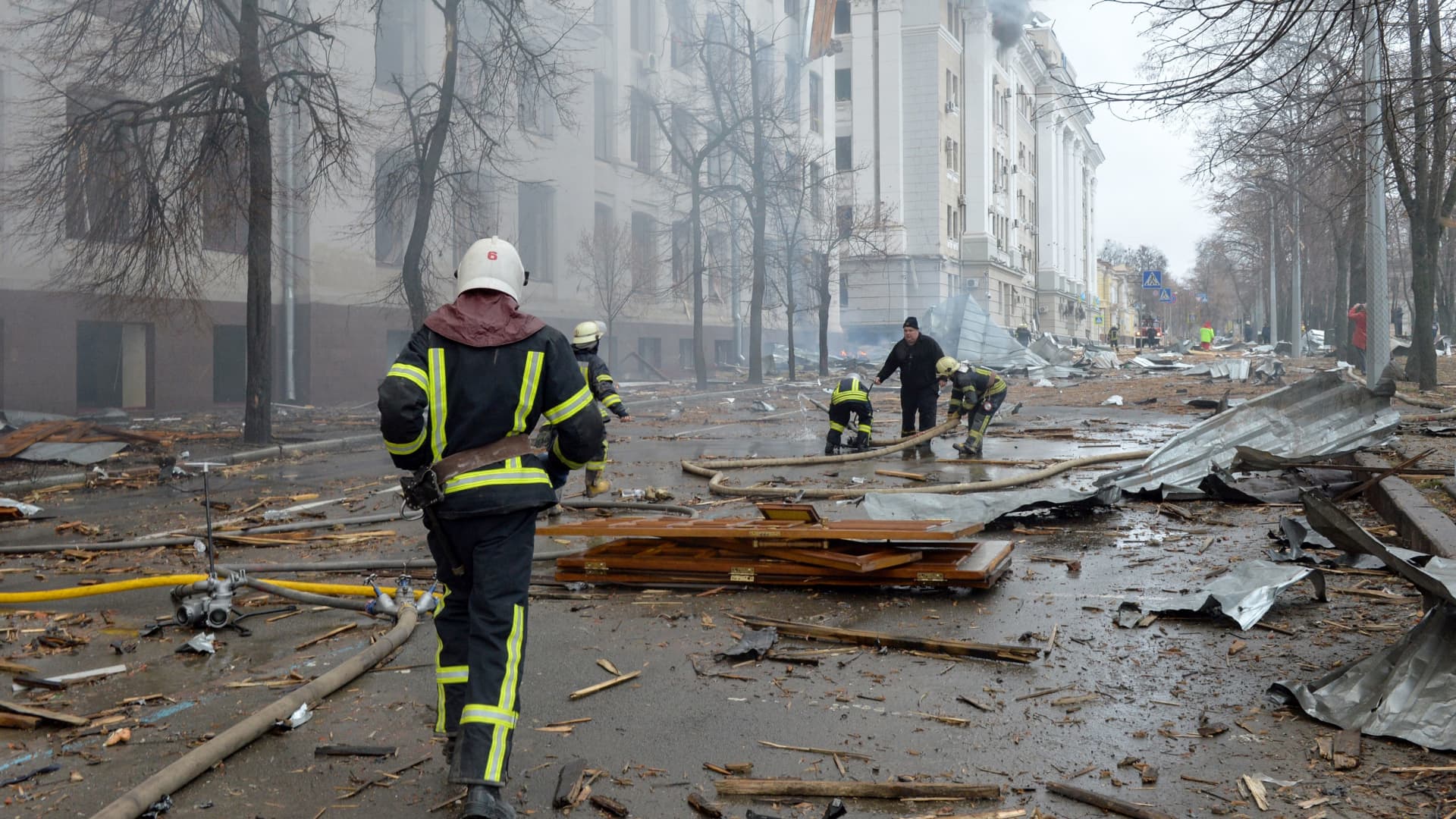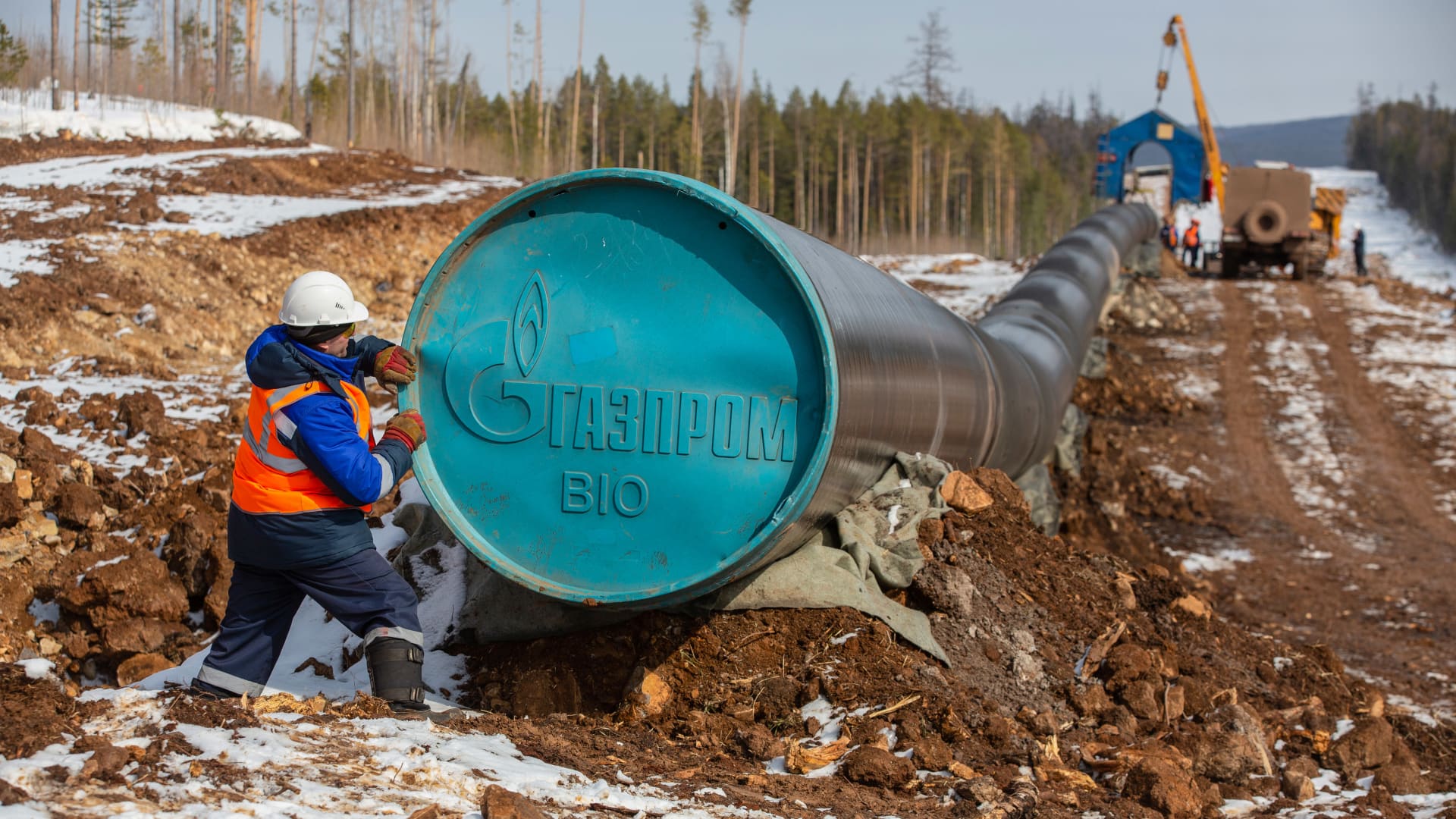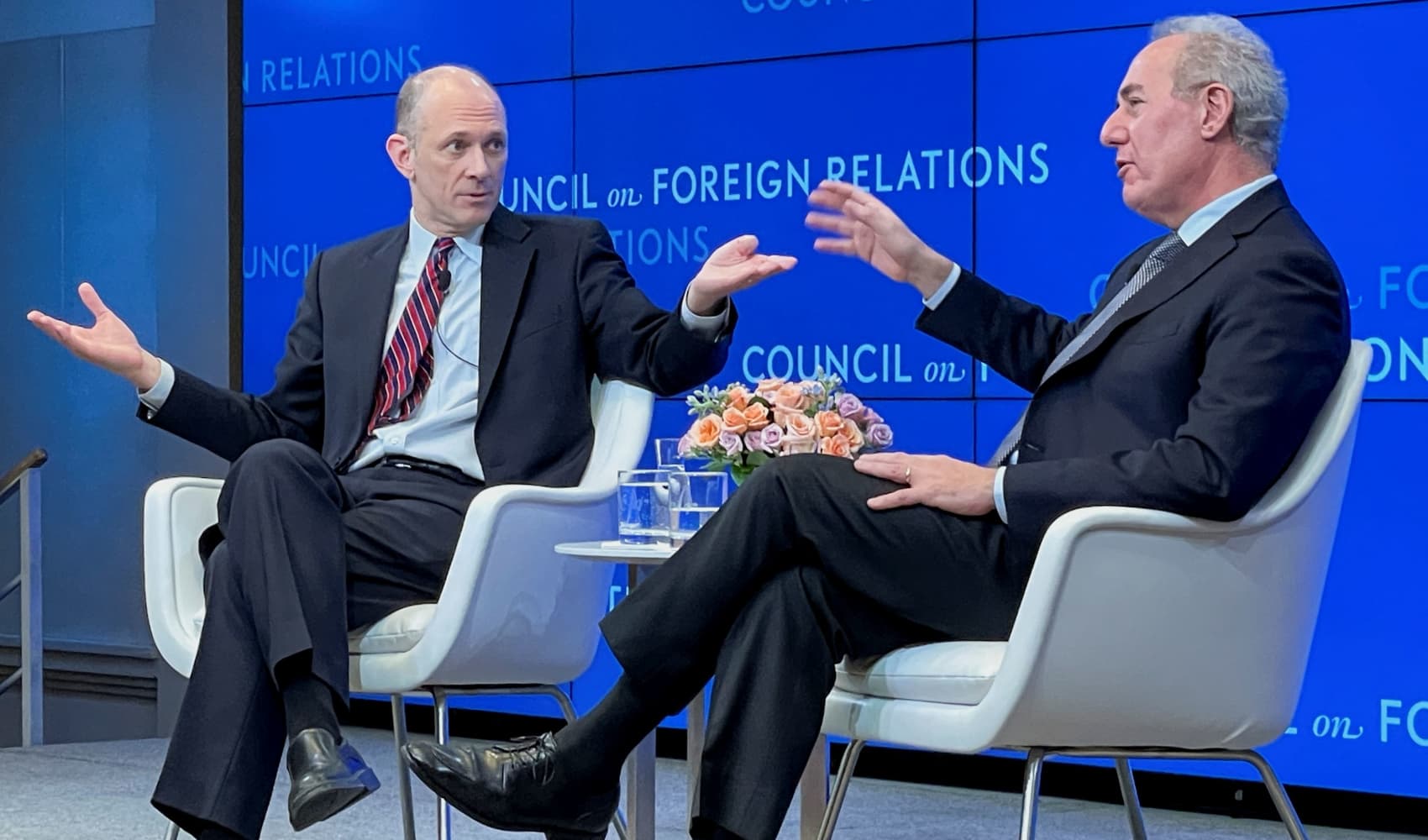
- Western sanctions imposed on Russia over its invasion of Ukraine have so far been carefully constructed to avoid directly hitting the country's energy exports.
- The U.S. has said that sanctions on Russia's oil and gas flows are "certainly on the table," but that going after exports now could be counterproductive in terms of raising global energy prices.
- "If Russia continues to wage this war ... it is only a matter of time before we're talking about full secondary sanctions on energy exports," Helima Croft, head of global commodities strategy at RBC, said.
It may only be a matter of time before the U.S. and Western allies impose full sanctions on Russia's energy exports, analysts say, warning that such a move would have seismic repercussions for oil and gas markets and the world economy.
It comes as Russia's onslaught on key Ukrainian cities enters its second week, with fighting raging in the north, east and south of the country.
Get Boston local news, weather forecasts, lifestyle and entertainment stories to your inbox. Sign up for NBC Boston’s newsletters.
Western sanctions imposed on Russia over the invasion have so far been carefully constructed to avoid directly hitting the country's energy exports, although there are already signs the measures are inadvertently prompting banks and traders to shun Russian crude.
Russia is the world's third-largest oil producer, behind the U.S. and Saudi Arabia, and the world's largest exporter of crude to global markets. It is also a major producer and exporter of natural gas.
The U.S. has said that sanctions on Russia's oil and gas flows are "certainly on the table," but that going after exports now could be counterproductive in terms of raising global energy prices.
Money Report
Nonetheless, there have been calls for Western governments to ratchet up measures targeting Russia's economy and Ukraine Foreign Minister Dmytro Kuleba has called on foreign governments to impose a "full embargo" on Russian oil and gas.
John Kilduff, partner at Again Capital, said the market is already starting to believe that Russia's oil exports will be sanctioned.
"Oil from Russia will be foreclosed from the global market here at some point and we are already seeing commercial activity reduced, particularly as it relates to Russia exports via maritime assets and that is already hitting the market," Kilduff told CNBC's "Closing Bell" on Tuesday.
"These are barrels that we cannot make up, so that's why this market is on tenterhooks," he added.
Oil prices have surged to multiyear highs in recent weeks, with mounting supply disruptions pushing international benchmark Brent crude toward $120 a barrel.
Brent futures traded 1.6% higher to $114.72 on Thursday morning in London, while U.S. West Texas Intermediate crude futures rose 2.2% to $113.06.
Unknown territory
The U.S. and European Union have publicly sought to ringfence Russia's energy sector, wary of the potential damage for domestic consumers and the prospect of Moscow curtailing exports as a retaliatory measure.
For months, escalating Russia-Ukraine tensions have resulted in a sense of deepening concern about the potential for a full supply disruption to the EU — which receives roughly 40% of its gas via Russian pipelines, several of which run through Ukraine.

The prospect of cutting off the supply of Russian gas could have profound public health and economic consequences, especially given that it is currently winter and governments are already battling the coronavirus pandemic.
Brenda Shaffer, senior advisor for energy at the Foundation for Defense of Democracies think tank, told CNBC via telephone that the prospect of removing Russian energy exports from the market would likely result in "a tremendous jolt" to global oil prices and the world economy.
"We're in unknown territory if you pull 13% to 15% of global oil out of the pool. Sanctions on Iran and Venezuela, it's not even comparable to what that could do to the global oil market if you actually pulled away most of Russian production," Shaffer said.
The impact of Western oil majors pulling the plug on Russia is also likely to have "huge" economic ramifications, Shaffer said, citing a flurry of announcements from the likes of Exxon Mobil, Shell and BP in recent days.
"People are really cheering this as a feel-good moment but it's actually going to be a huge, huge shock to the state of these companies and to the stock market in general," Shaffer said.
Sense of confusion
To many market participants, there is a sense of confusion over the likelihood of Russian energy sanctions in the coming weeks.
"If Russia continues to wage this war with this much ferocity [and] with this many civilian casualties, it is only a matter of time before we're talking about full secondary sanctions on energy exports, like we saw with Iran. So, I think the market is just very, very concerned," Helima Croft, head of global commodities strategy at RBC, told CNBC's "Closing Bell" on Tuesday.
"If we do get full energy sanctions, we will then have to look at another SPR release. But more importantly, there's going to be a lot of pressure on the OPEC producers that are sitting on spare capacity to release more barrels onto the market," Croft said.
On Wednesday, members of the International Energy Agency agreed to release 60 million barrels of oil reserves, in an attempt to offset energy market disruptions caused by the sanctions against Russia. The U.S. has said 30 million of this total will come from its Strategic Petroleum Reserve.
OPEC and non-OPEC partners — an influential energy alliance known as OPEC+ — on Wednesday agreed to stick to their plan of a modest output rise in April. The group defied calls for more crude even as oil prices rally on supply disruption fears.
It is thought de facto OPEC leader Saudi Arabia, alongside the United Arab Emirates and Kuwait, may be among the few members of the alliance with enough spare capacity to ramp up production.
'Toxic asset'
Croft said that even in the absence of sanctions targeting Russia's energy exports, there is a "self-sanctioning phenomenon" underway given that Moscow is being viewed as a "toxic asset."

Analysts at risk consultancy Eurasia Group have noted that Russia's commodity trading is drying up as international banks and traders refuse to do deals with their Russian counterparts as they digest the impact of sanctions. This was likely to propel oil prices even higher, the analysts added.
"While the U.S. and EU governments are attempting to ringfence the energy sector from sanctions so far, absent further clarification regarding carveouts, widespread risk aversion is likely to persist," the analysts said in a note published Monday.
"There also remains a risk that energy will be targeted directly if fighting escalates, or that Russia will curtail some oil exports as a retaliatory measure," they said. "As the main supplier of fossil fuels to the EU, Russia retains leverage."






